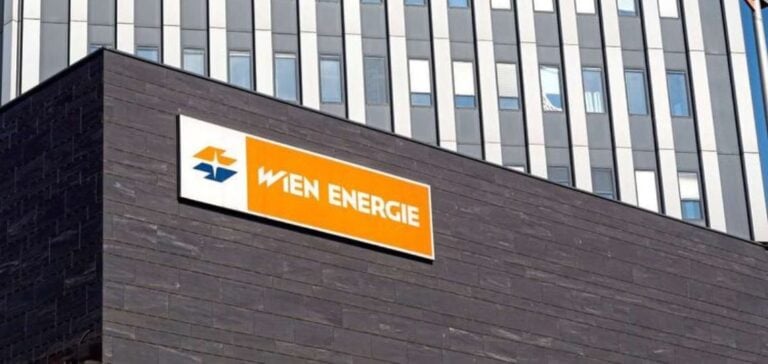Wien Energie, Vienna’s leading energy company, is taking significant steps to reduce its dependence on Russian natural gas.
This initiative is part of a wider re-evaluation of energy supplies in Europe, particularly following Russia’s invasion of Ukraine in 2022. Austria, which has long been one of the European Union countries most dependent on Russian gas, is turning to alternative sources to secure its energy supply.
Wien Energie ‘s decision to end its use of Russian gas by 2025 represents a strategic turning point for the country.
Wien Energie’s strategy for moving away from Russian gas
Wien Energie has announced its commitment to supply its customers, power plants and district heating network with non-Russian gas by 2025.
To this end, the company has already secured alternative supplies.
A significant proportion of this gas will come from the North Sea, a region rich in gas resources, notably from the UK and Norway, which have increased production to meet growing demand in Europe.
This transition to alternative sources is essential to guarantee the continuity of energy services while reducing dependence on Russia.
Peter Hanke, city councillor in charge of financial and economic affairs in Vienna, stressed the importance of diversifying gas supply sources.
He stated that “Russia is not a reliable partner for Europe, as recent years have clearly shown,” underlining the need for a proactive strategy to ensure Austria’s energy security.
This statement highlights the challenges Austria faces in its quest for sustainable energy independence.
Economic and energy implications
Wien Energie’s decision to turn away from Russian gas has significant economic implications for Austria.
By 2021, over 80% of Austria’s gas imports will come from Russia.
By diversifying its sources of supply, the country can reduce this dependence and strengthen its energy security.
This shift could also influence gas prices on the European market, introducing a new competitive dynamic, particularly in the Central and Eastern European region.
By ceasing to import gas from Russia, Wien Energie is increasing the diversity of its supply sources, thereby reducing the risk of disruption due to geopolitical conflicts.
However, this transition could also entail higher initial costs, notably due to the necessary adjustments in supply contracts and investments in new infrastructure.
In the long term, these changes could stabilize energy prices and protect Austrian consumers against unforeseen fluctuations.
Political and geopolitical implications
Wien Energie’s decision is in line with the European Union’s energy policy, which aims to reduce dependence on Russian fossil fuels.
The EU has been implementing measures to reduce this dependence since the start of the war in Ukraine, and Wien Energie’s initiative illustrates how local energy companies are aligning themselves with these directives.
By eliminating Russian gas from its energy mix, Wien Energie is sending a strong message of solidarity with Ukraine and support for the EU’s sanctions policies.
Austria, although not a member of NATO, has historically maintained relatively neutral relations with Russia.
However, the war in Ukraine has led the country to reassess its energy policy.
Wien Energie’s decision reflects this strategic shift and could influence other energy market players in Austria and beyond.
This repositioning could also have repercussions on Austria’s diplomatic relations with other European countries.
Future challenges and prospects
The transition to non-Russian gas sources poses logistical challenges for Wien Energie.
The company must guarantee continuity of supply while managing complex adjustments in its operations.
This will require investment in new infrastructure and management of long-term supply contracts with alternative partners.
Wien Energie’s ability to navigate these challenges will be crucial to the success of its strategy.
In the long term, this transition could enhance Austria’s energy security by reducing its vulnerability to supply interruptions.
At the same time, it could encourage the development of renewable energy sources, such as wind and solar power, to complement the country’s energy mix.
By reducing its dependence on Russian natural gas, Austria could also strengthen its decarbonization efforts, promoting a transition to more sustainable energies and investing in energy storage technologies.
Wien Energie’s decision to phase out Russian gas by 2025 represents a significant step for Austria in securing its energy supply.
This move is part of a wider trend within the EU to reduce dependence on Russian fossil fuels and accelerate the energy transition.
The implications of this decision will be felt not only on the Austrian energy market, but also on the European energy landscape as a whole.





















